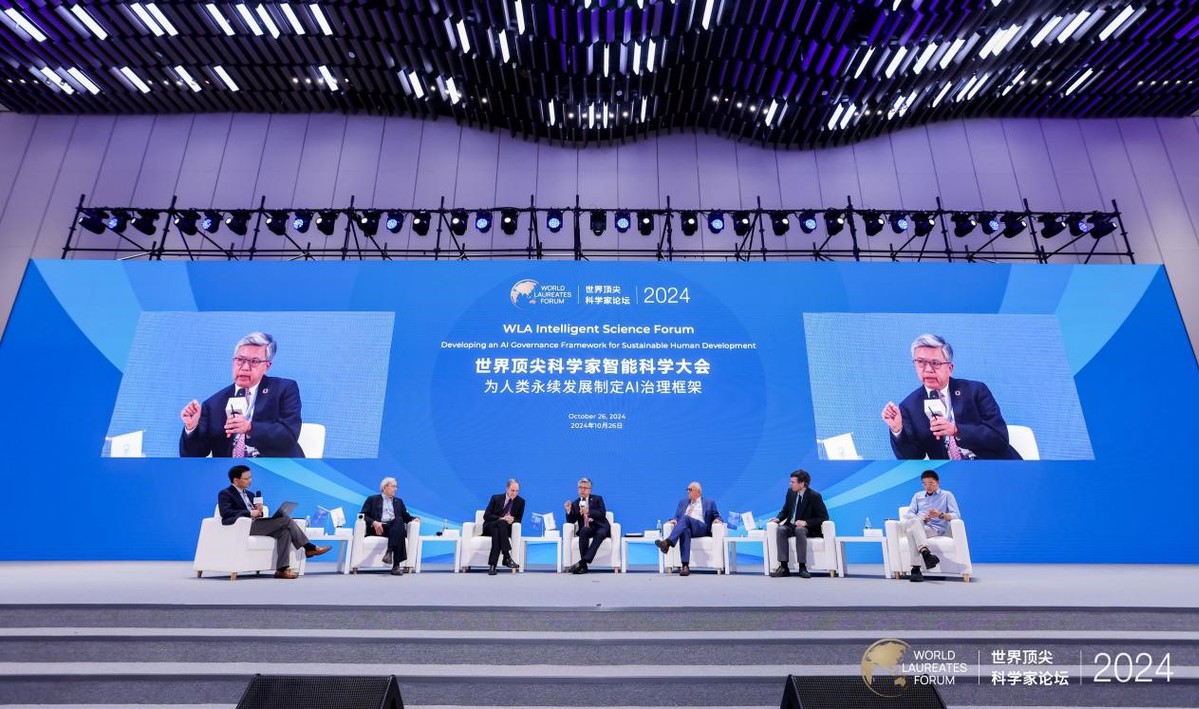
Panelists engage in discussion at the World Laureates Association (WLA) Intelligence Science Forum on Oct 26. [Photo provided to chinadaily.com.cn]
Leading scientists and industry experts from around the world gathered at the World Laureates Association (WLA) Forum on Oct 26 in Shanghai to discuss the development of a global artificial intelligence (AI) governance framework, emphasizing the need for responsible innovation in the face of AI's rapid advancement and its profound impact on society.
The Intelligence Science Forum, themed "Developing an AI Governance Framework for Sustainable Human Development", featured prominent figures like 2015 Turing Award winner Martin Hellman and Chinese Academy of Sciences academician E Weinan.
Professor Gong Ke, executive dean of the Chinese Institute for New Generation Artificial Intelligence Development Strategies, opened the conference highlighting the urgency for robust AI governance to stay up-to-date with the unprecedented capabilities of AI. He emphasized the lack of a universally recognized framework for AI governance, a crucial gap that the conference aimed to address.
Distinguished speakers, including Nobel laureates, Turing Award recipients and academics from China's leading institutions, explored the transformative opportunities and potential threats posed by AI. Joseph Sifakis, 2007 Turing Award recipient, underscored the challenge of ensuring trustworthiness in AI systems due to their lack of explainability and dependence on sensory data.
Jon Kleinberg, recipient of the 2024 WLA Prize in Computer Science or Mathematics, cautioned against algorithmic bias in his address, "Daily Life in an Algorithmic World". Using the agricultural concept of "monoculture", he highlighted the dangers of homogenization in algorithmic decision-making.
The roundtable discussion delved into establishing effective oversight and evaluation mechanisms for AI, navigating global challenges and opportunities presented by the technology, and promoting responsible innovation. Scientists advocated for a comprehensive AI governance system to regulate data usage, algorithm design and security. They stressed the importance of mitigating bias in algorithms to prevent unfair outcomes based on race, gender or age, while ensuring equitable access to AI benefits across geographical and economic divides.
This year's WLA Forum, with its theme "Excellence in Science", saw the inauguration of the Physical Science Conference alongside the established Life Science and Intelligence Science conferences. This strategic expansion reflects the forum's commitment to driving both fundamental research and its practical application for societal advancement.
Luo Bin contributed to this story.